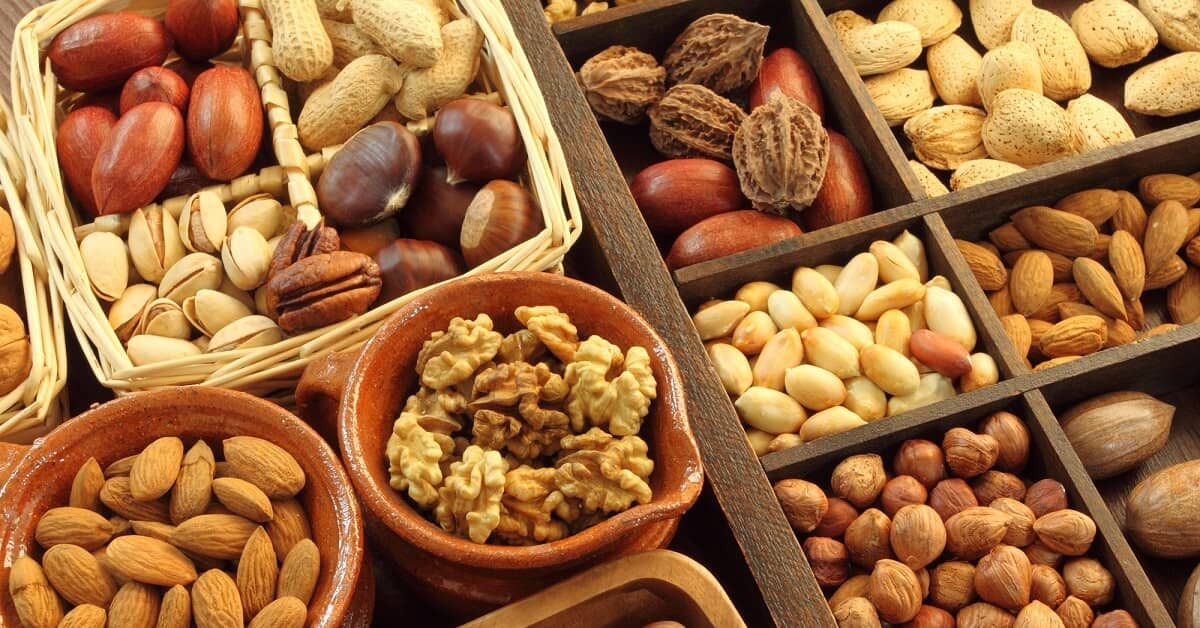
The idea that to lose weight you have to deprive yourself of eating tasty foods and never feel completely satisfied after a meal is a myth that too many people believe.
Today’s case in point is nuts – one of my personal favorites. Nuts are proof that delicious, satisfying food doesn’t have to wreck your health.
In study after study, this type of food not only makes you feel full, it’s also linked to weighing less and enjoying a lower risk of heart problems.
With their usual gift for getting it wrong, mainstream doctors advised people for years to stay away from nuts because they’re high in fat. I hope nearly all Green Valley readers know that certain fats are just about the healthiest foods you could eat. It’s carbs you need to avoid.
New discoveries to prove it just keep coming. . .
In a four-year analysis involving more than 125,000 people, researchers found that eating one serving of nuts a day (which consists of one ounce of whole nuts or two tablespoons of nut butter) generally lowers your risk of gaining weight. And substituting a helping of nuts for things like French fries, creamy desserts or potato chips, was linked to an improved chance of keeping weight off.1
“People often see nuts as food items high in fat and calories, so they hesitate to consider them as healthy snacks, but they are in fact associated with less weight gain and wellness," says researcher Xiaoran Liu, who is in the nutrition department of the Harvard School of Public Health.
In another study, which compared the effects of snacking on pretzels versus snacking on Brazil nuts, researchers at San Diego State University found those who eat nuts enjoy the sort of after-snacking benefits that are likely to help you keep your weight down.2
In this test, it was shown that while pretzels can help you feel full, Brazil nuts are better at making you feel full and satisfied for the same amount of calories. The nuts leave you less hungry.
While folks’ blood sugar and insulin both spiked 40 minutes after eating pretzels, consuming Brazil nuts kept blood sugar and insulin levels “stabilized.” That effect “may be beneficial in preventing diabetes and weight gain,” observes researcher Mee Young Hong, who is a professor in the School of Exercise and Nutritional Sciences.
Pretzels are a different story. They’re a refined carbohydrate that makes your blood sugar spike and then drop, which can increase your hunger and tempt you to binge on more pretzels.
Sharing Your Calories
Even though nuts are high in fat and calories they are not linked to weight gain. One likely reason, according to researchers at the University of Illinois, is because when you eat nuts you don’t get those calories all to yourself.
You have to share them with the probiotic bacteria living in your intestinal tract.
And that’s a good thing, say the researchers – because it not only helps keep your weight down, but also the nutrients and calories absorbed by those microbes fuel the production of natural chemicals that improve your health.3
Hanna Holscher, a professor of nutrition and food science, points out, "When you do calculations to determine how much energy (calories) we predicted we would get from eating walnuts, it didn't line up with the energy that was absorbed. You're really only absorbing around 80 percent of the energy from walnuts that labels say. That means that the microbes get access to that extra 20 percent of calories and the fats and fiber left in them.”
What do the bacteria do with those calories? For one thing, the make butyrate, a chemical that improves your intestinal health. The bacteria also have anti-inflammatory effects that protect your heart and cardiovascular system.
The upshot: you can consider nuts to be a practically guilt-free food that can help you lose weight and you can also view them as natural, preventive medicine. And good tasting medicine at that! Because even as nuts make you feel full and feed a billion or so of the bacteria living in your digestive tract, their “side effects” are keeping you healthier.

